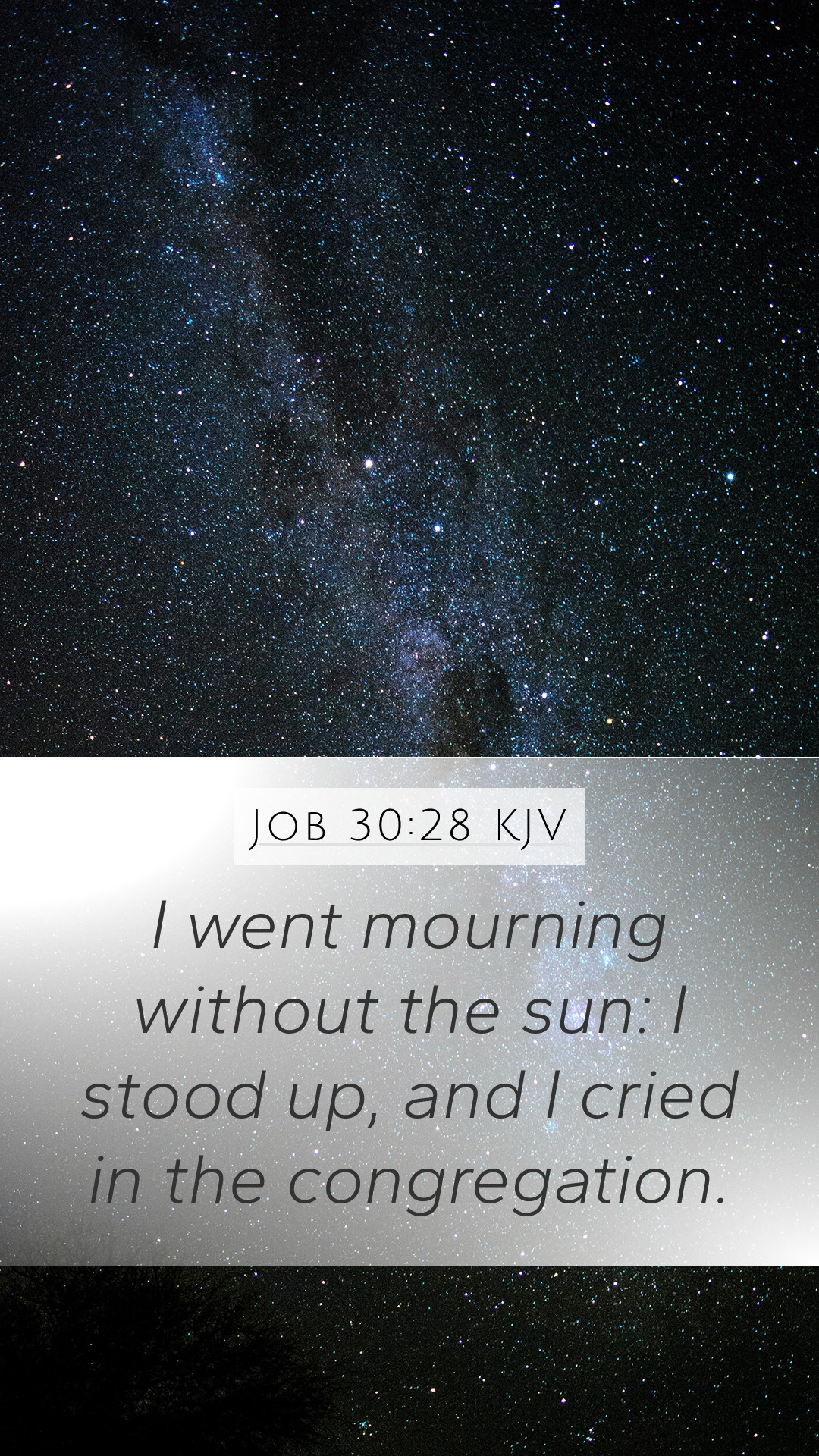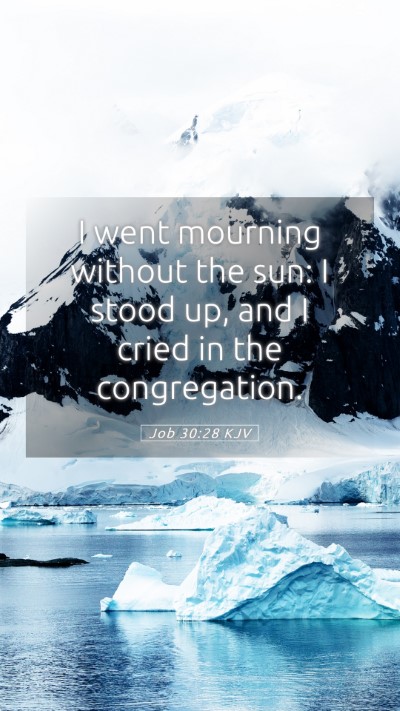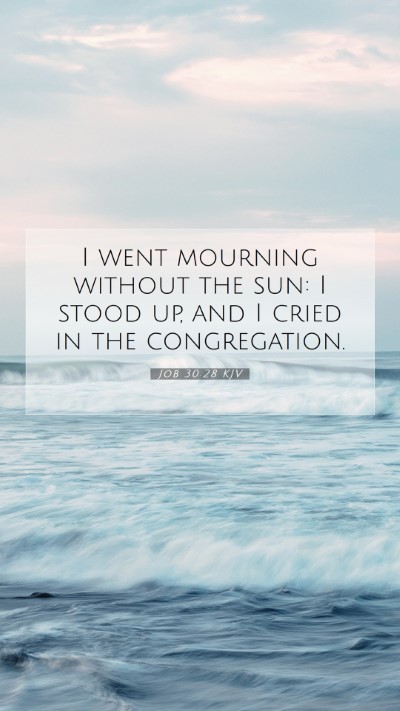Bible Verse Meaning of Job 30:28
Job 30:28: "I go mourning without the sun: I stand up, and I cry in the congregation." This verse captures the profound sorrow and despair Job experiences in the midst of his suffering. It illustrates his emotional state, accentuated by his lamentation in communal settings.
Summary of Insights from Public Domain Commentaries
The following provides a rounded understanding of this verse by synthesizing insights from Matthew Henry, Albert Barnes, and Adam Clarke.
- Matthew Henry: Henry emphasizes the starkness of Job's mourning, suggesting that it is a reflection of his deep anguish and the absence of God's favor. He notes the communal aspect of Job's grief, indicating that Job feels isolated in his suffering even when surrounded by others.
- Albert Barnes: Barnes points out that Job’s mourning is both physical and emotional, where the absence of sunlight symbolizes despair and sorrow. He interprets Job’s standing and crying in the congregation as an indication of Job's desperate need for support and recognition of his plight, underscoring a universal human experience of seeking empathy.
- Adam Clarke: Clarke focuses on the significance of Job's public lamentation and the importance of community in times of trouble. He emphasizes that Job’s cries reflect an inner turmoil that resonates with others, thus inviting community participation in his grief, which may lend advocate voices to his situation.
Detailed Explanation of Job 30:28
This verse speaks to many who seek Bible verse explanations and Bible verse understanding. It reflects Job's profound sense of loss and his desire for acknowledgment in his suffering. The phrase "without the sun" symbolizes dark times, where hope and joy are absent. In this moment, Job’s intention is not merely to express his sadness but to call upon others to bear witness to his suffering.
Contextual Analysis
Understanding the context of Job's life is crucial for grasping this verse. Prior to this declaration, Job had expressed feelings of abandonment by both God and his friends. The surrounding chapters amplify Job's feelings of desolation, providing rich material for Bible study groups and online Bible study. His despair mirrors the struggles faced by many, making this verse a significant part of Bible study insights.
Cross References
This verse can be harmonized with the following Scriptures:
- Psalms 42:3: "My tears have been my meat day and night." This verse parallels Job's mourning and the depths of despair one can feel in isolation.
- Psalms 22:1: "My God, my God, why hast thou forsaken me?" Here, the feeling of abandonment is echoed, much like Job's emotional state.
- Isaiah 53:3: "He is despised and rejected of men; a man of sorrows, and acquainted with grief." This reflects the suffering servant theme that can be associated with Job's experiences.
Application and Relevance
For those engaged in Bible study lessons or searching for the significance of sorrow and communal grief, Job 30:28 serves as a poignant reminder of the human condition. It encourages believers to support one another in suffering, demonstrating the importance of community and empathy.
Summary
In summary, Job 30:28 portrays a powerful image of mourning and the quest for understanding in times of trial. It invites readers to reflect on their own experiences of grief and the communal dimensions of suffering, making it a profound subject for Scripture analysis and Biblical exegesis.
Closing Reflection
Engagement with this verse can deeply enhance one's understanding of both personal and collective grief. It also opens up questions for further Bible study topics, such as the nature of lamentation in the Bible and its implications for modern believers.


